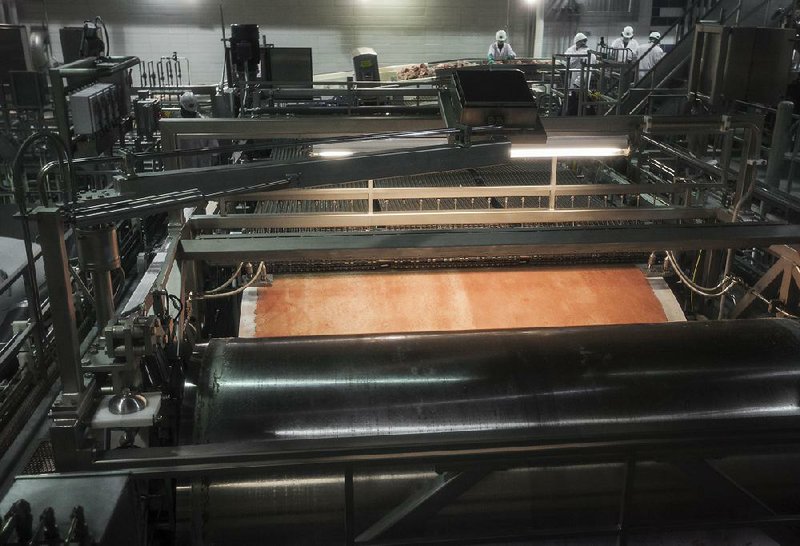Beef Products Inc.'s defamation lawsuit against television broadcaster ABC started Monday in Dakota Dunes, S.D.
The lawsuit stemmed from a series of stories by ABC reporter Jim Avila in March 2012 that referred to the company's lean finely textured beef as "pink slime." The beef company filed a defamation lawsuit in September 2012 and blamed the aftermath of ABC's reporting for its revenue loss of hundreds of millions of dollars, the shuttering of three processing plants, and more than 700 employee layoffs, according to a release from Beef Products.
The lawsuit trial, scheduled to last eight weeks, is drawing the attention of food industry heavyweights.
"Our beef unit has had a long relationship with BPI, and like others in our industry, we will be following the case closely," said Caroline Ahn, manager of external communications for Tyson Foods Inc., in an email.
Avila's reporting claimed that roughly 70 percent of Beef Products' beef contained traces of lean finely textured beef, used as an additive to reduce the overall fat content of ground beef. Beef demand hit a record low nationwide that year. Ground-beef sales slipped to 37.7 million pounds March 2012, the smallest amount reported in a decade and an 11 percent drop compared with the previous month, according to data from the U.S. Department of Agriculture.
During that time, Tyson Foods reported an increase in chicken volume sales while overall beef sales dropped compared with the previous year. According to Tyson's 2012 second-quarter earnings report, Tyson's beef pound sales dropped 9 percent and ground-beef sales dropped 7 percent, citing "extremely challenging market conditions."
Third-quarter beef sales also were lower than the company projected earlier that year, said Donnie Smith, president and chief executive officer of Tyson Foods, according to its 2012 third-quarter earnings statement.
Tyson Foods has worked with Beef Products Inc. for years. In 2014, Tyson began collecting its raw beef trimmings and shipping them for sale to a Beef Products facility in Nebraska.
According to Tyson's latest earnings report, the company's beef segment "generated tremendous operating income" for its second quarter and are projected to have an operating margin around 5 percent.
However, media coverage of the lawsuit could influence beef demand, said Travis Justice, chief economist for the Arkansas Farm Bureau.
"The slang term they used to describe it doesn't sound appetizing," he said.
Justice pointed to a similar defamation trial surrounding Oprah Winfrey's hamburger comments from an April 1996 airing of Winfrey's talk show. A Texas cattle group sued the television host, blaming her for a drop-off in beef sales and sought millions in damages. After five weeks, the court found Winfrey merely exercised her First Amendment right of free speech.
Whether the same results will play out is yet to be seen.
"I'm not an attorney, so I can't judge it from its legal merits, and all the intricacies that it might involve," Justice said, adding later. "Does it represent defamation? That will all play out in court, but nonetheless, it's going to put that issue back in the [public's] forefront a little bit."
Business on 06/08/2017

